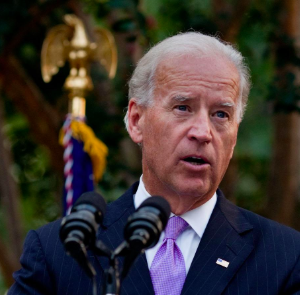Earlier this month, former Vice President Joe Biden released his long-awaited climate plan. Barring fresh accusations of plagiarism by political commentators, Biden is proposing a drastic change to the federal government’s policy on climate change.
“I’m calling for a Clean Energy Revolution to confront this crisis and do what America does best – solve big problems with big ideas,” Biden said.
Biden plans to have America using 100 percent clean energy by 2050. According to reports, the plan costs $5 trillion shared between the government and the private sector. Federal taxes would cover $1.7 trillion and leverage the remainder in local spending and private-sector investment.
To finance much of the proposal, Biden would also require a reversal of Trump’s signature tax reforms.
The plan would close evasion loopholes and restrict outsourcing of operations as a way to ensure that corporations are upholding their tax commitments. Biden’s plan targets legacy energy producers by ending subsidies on fossil fuels, too.
Biden wants to encourage solutions like nuclear, carbon capture, and energy storage, an approach that many in the environmental movement reject. For example, the Green Party of the United States has called for the phaseout of nuclear energy, along with fossil fuels, biomass, and hydraulic fracturing. Green America also opposes nuclear, citing risks of waste and catastrophes like Chernobyl in the former Soviet Union and Fukushima in Japan.
Even though the International Atomic Energy Agency and the U.S. Department of Energy both endorse nuclear as clean and renewable with internationally adopted safety standards, climate groups still find fault.
In a recent review, the Wall Street Journal editorial board commented that the would-be president is “ducking the reality that transforming American energy on the scale he imagines will have enormous costs.
The Journal’s critique is noteworthy given that Biden has long tried to differentiate himself from his more progressive competitors with a balanced “middle ground” approach. But, even appearing in such light has been condemned as “stunningly un-ambitious.”
Conservatives and business interests are also skeptical. “Joe Biden’s climate plan would wreak havoc on our economy,” says Alfredo Ortiz of the Job Creators Network. “By reversing the historic tax cuts of 2017 and burdening small businesses with more regulations, Biden’s plan would kill millions of jobs and throw us back into recession.”
Still, resistance from the environmental Left is the biggest challenge to Biden as he fights for his party’s 2020 nomination. Biden ranked poorly, just 14 points out of 100, in a Greenpeace USA ranking analyzing the presidential candidate’s positions to climate policy. The only candidates who trailed him were John Hickenlooper, former Governor of Colorado; libertarian turned Republican Bill Weld; and President Trump.
According to Greenpeace, Biden’s ranking was owed entirely to legislative records, public statements, and responses to a 29-question survey.
“Biden’s plan remains problematic in several ways, and we hope he will listen to concerns from communities and scientists in the days and weeks ahead,” says David Turnbull of environmentalist group Oil Change U.S. “Reliance on unproven techno-unicorns like carbon capture and storage promotes the interests of the incumbent fossil fuel industry while forestalling critical action needed to swiftly move away from fossil fuels completely.”
Erich Pica of Friends of the Earth Action offered more direct criticism.
“This plan embraces dangerous nuclear power, environmentally-harmful biofuels, and foolish dreams of carbon capture and sequestration that will lock in our continued dependence on fossil fuels,” Pica said.


